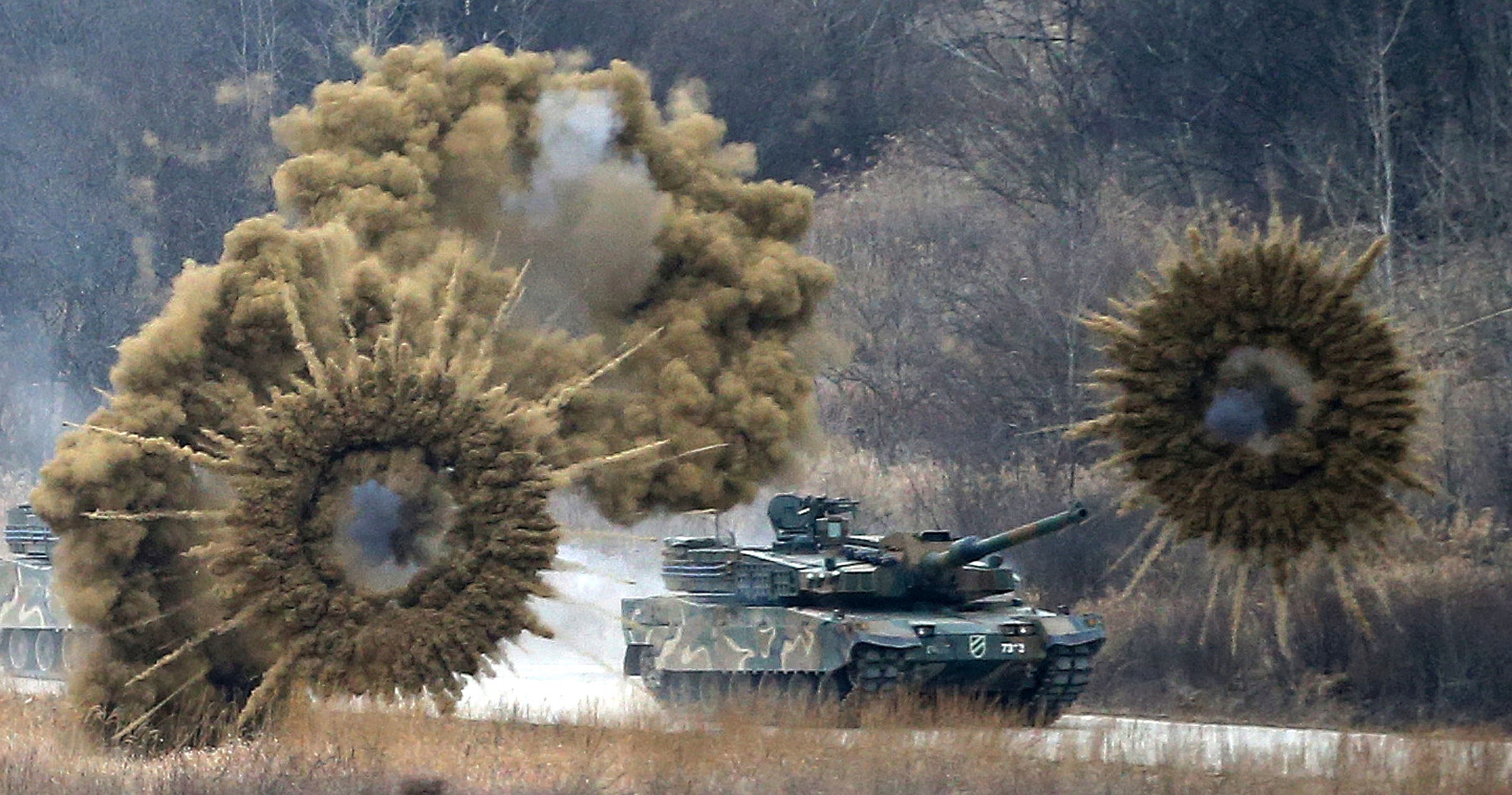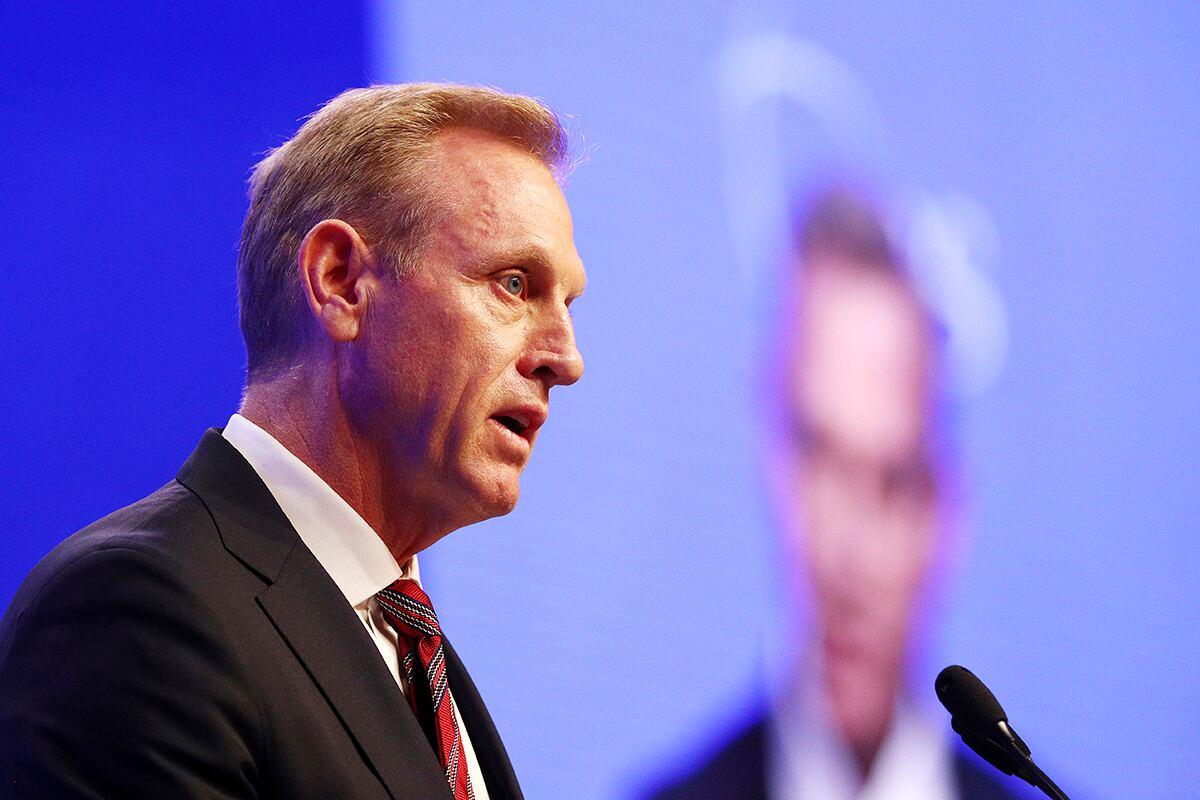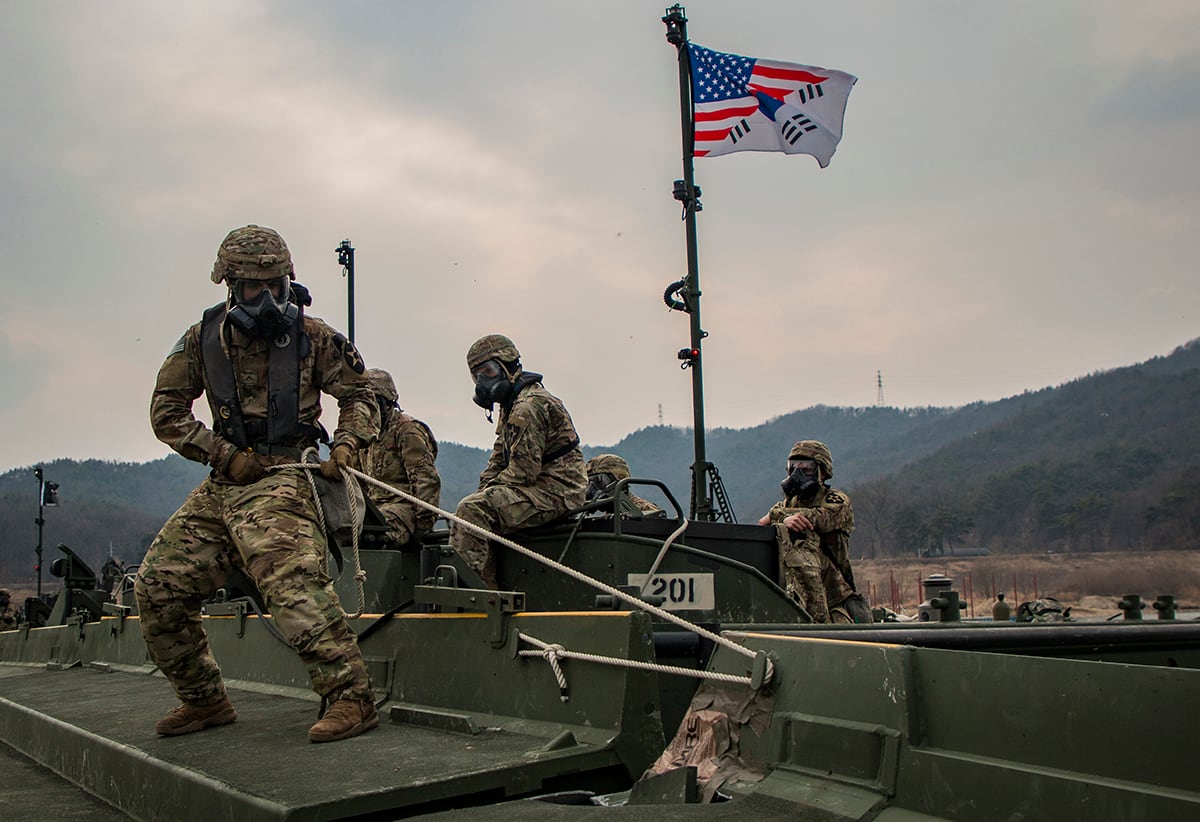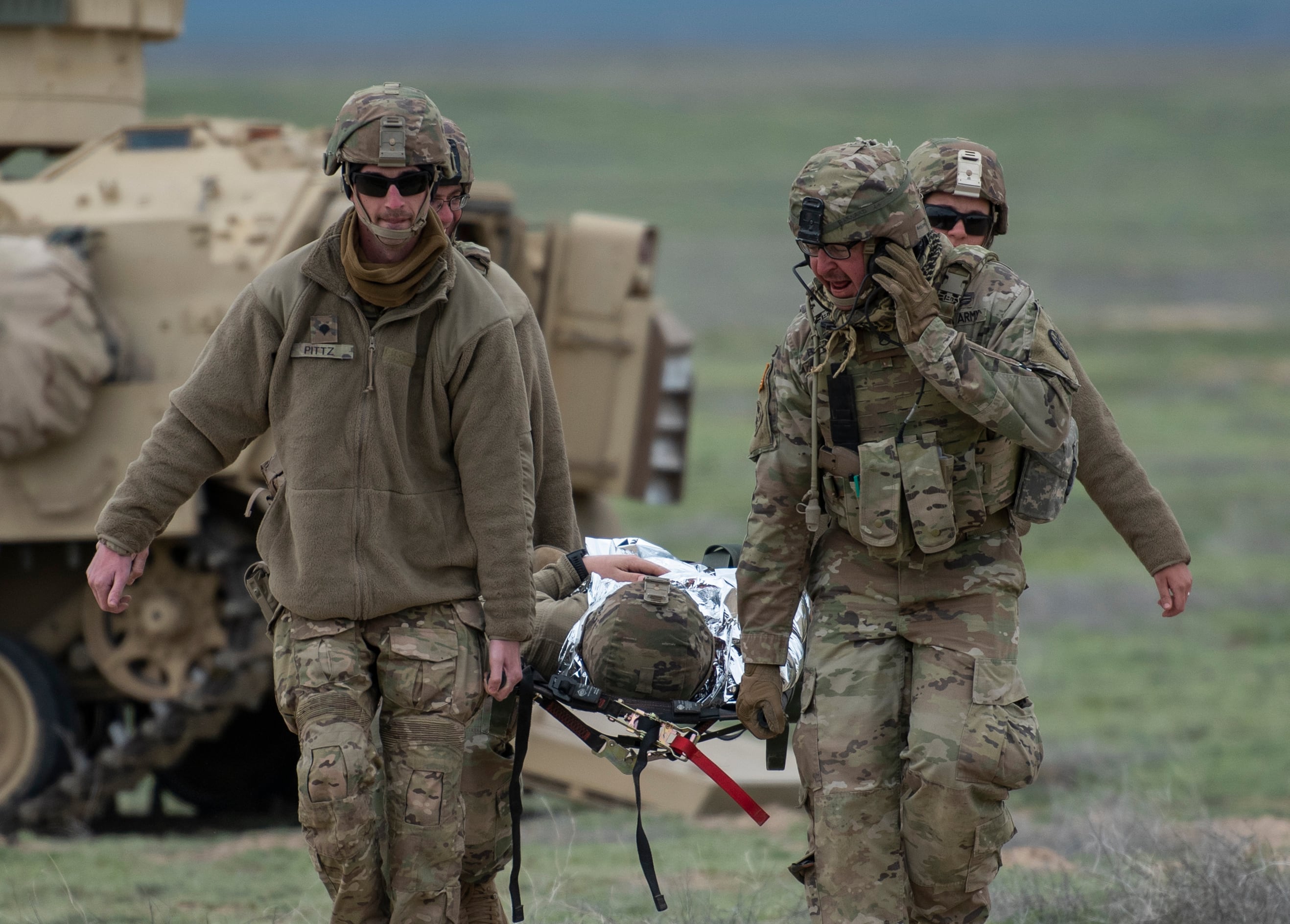SEOUL, South Korea — Acting Defense Secretary Patrick Shanahan said Sunday that so far he sees no need to restore large-scale military exercises with South Korea that have been curtailed over the past year as a diplomatic olive branch to North Korea.
“I’m confident that we have the readiness that we are required to have,” Shanahan said as he flew to Seoul to meet with his commanders and South Korean officials. But he also said he wants to discuss the issue with his top American commander in South Korea, Army Gen. Robert Abrams, to “make sure that the plan that we put in place is sufficient.”
Shanahan's visit to Seoul comes as the U.S. and partners in the region weigh how to respond to missile tests conducted last month by North Korea. The tests fuel debate over whether the elimination of drills may impair the U.S. and South Korea's ability to respond if the North is once again turning away from diplomacy and moving to heighten hostilities.
RELATED

Senior U.S. officials, including Shanahan, have said that the North Korean test launches of what they believe were short-range ballistic missiles were a violation of U.N. Security Council resolutions. The North has defended the launches as efforts to exercise its right to self-defense.
South Korea and the U.S. last year eliminated larger military drills and said they would replace them with smaller exercises. The North has viewed the large drills as an invasion rehearsal. In place of the bigger exercises, the U.S. and South Korea have been doing newly designed command post drills and revised field training programs.
The decision to dump the bigger drills came last June after President Donald Trump's first summit with North Korean leader Kim Jong Un. Trump abruptly announced the decision, saying that he disapproved of what he called U.S. "war games" in South Korea. He called the maneuvers provocative and expensive.
At the time, military leaders defended the move as a way to support diplomacy aimed at resolving the North Korean nuclear crisis. Pentagon officials said they believed the shift to smaller exercises would not harm military readiness, but that the decision would be periodically re-evaluated.
Last September, Abrams said at his Senate confirmation hearing that the suspension of the drills had contributed to a "slight" dip in combat readiness.
And some experts say it will likely weaken the allies' military readiness and hurt the ability of the U.S. and South Korean troops to work seamlessly together in the event of an attack or other emergency.

On Saturday in Singapore, Shanahan made clear that the U.S. believes that North Korea "remains an extraordinary threat." He told the Shangri-La Dialogue security conference that Pyongyang has "neared a point where it could credibly strike regional allies, U.S. territory and our forward-deployed forces."
Heightened tensions with the North in 2017 were followed by a surprising diplomatic outreach by Pyongyang in 2018, when Kim attended summits with the South Korean and Chinese presidents and with Trump. But North Korea has not received what it wants most from its summitry: relief from punitive sanctions imposed over its nuclear and missile programs.
A summit earlier this year between Trump and Kim ended in failure, with the United States saying that North Korea was not offering to take enough disarmament steps in return for the widespread sanctions relief it sought.




